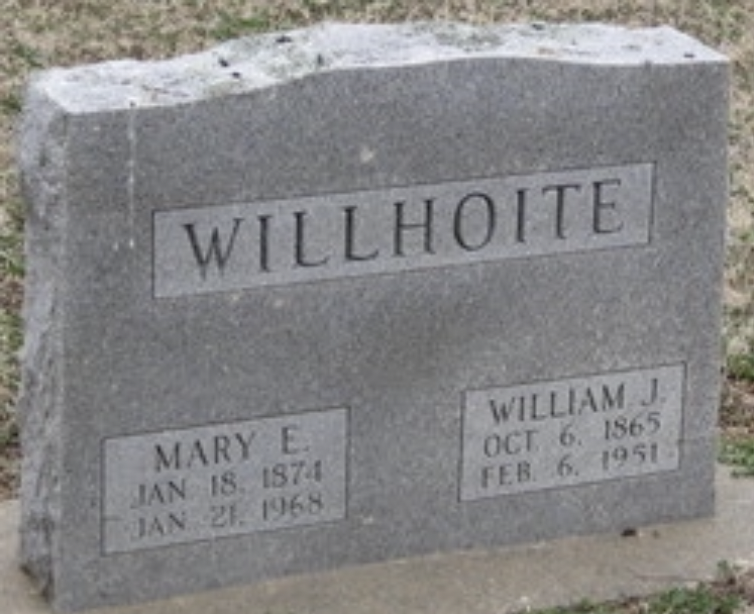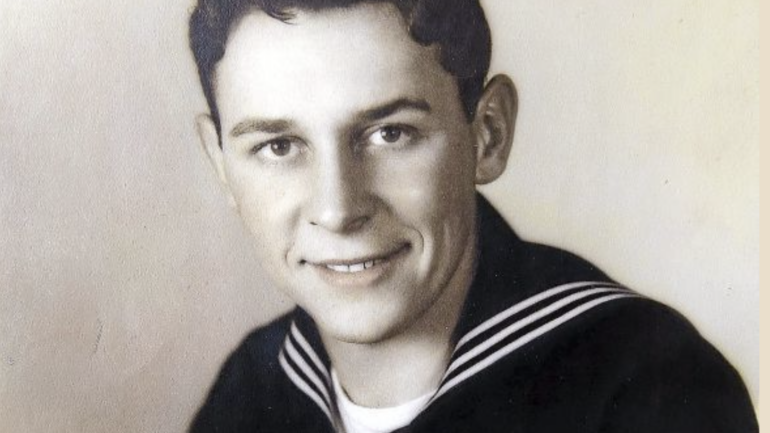Telling the history of Claremore…one story at a time.
This article was printed in the Claremore Progress June 27, 1993 by Ken Willhoite.
It’s odd how we live our lives, rarely thinking about the past. We walk on the same land on which our ancestors walked, drink the same water they drank. Their very blood courses through our veins to give us life. Yet we rarely think about the effects they have had upon our lives, and how a tiny twist of fate all those years ago could determine the lives of hundreds of others today.
The Willhoites of Rogers County owe their existence as Americans to somewhat of a fluke, but their existence as Oklahomans comes from the pioneer spirit of four brothers who set out to settle an untamed land.
“The story I heard is that the English found silver over here and went to Germany to find miners to mine it” said Loyd Willhoite, a lifelong resident of Claremore. “When they got here, they found out it wasn’t silver at all, but nickel. They were here just the same.”
When Michael Willhoite and his family came to America, they settled in Jamestown, Virginia, working as indentured servants for several years to pay their way. Their descendants fought in the Revolutionary War. Growing in number, they spread to Georgia, Tennessee and southwestern Missouri.
It was Loyd’s great-grandparents, Ephrain and Mary Willhoite, who first set out west with their family to establish a farm in Long Lane, Missouri, near what is now Lebanon. They soon had four boys, William, Dave, Alonzo and George. William, born in 1865, was Loyd’s grandfather.
The boys grew up, working the land with their father. William eventually was married to a young woman named Georgia, who died shortly after the birth of their first child, Levi, Loyd’s father, in 1892.
“They called it childbirth fever,” Loyd said. “They weren’t very sterile back then, and when a baby was born, the mother often came down with an infection.”
William married Sarah two years later, and they had a son, who they named Leslie. But tragedy was again in store for William, as he was to lose his second wife while crossing a river in their horse drawn wagon.
“He was going to take one of the horses across, but the other one was still hooked up, and when it took off, she was run over by the wagon,” said Loyd. “When he got back, all he had was a dead wife, two kids and five dollars.”
Some years later, in 1897, William married Mary Elizabeth Dennis. They had a daughter, Elodie Jane. It was about this time that William and his brothers decided to explore Indian Territory, and some time before the turn of the century, loaded their families in covered wagons to homestead in the unspoiled region that would soon be Oklahoma. They brought with them 35 other families.
William settled near Haskell for a couple of years. There, daughter, Elizabeth, was born. After her birth, the family moved to Rogers County and in 1909 established a home place atop a hill that rises from a valley west of Tiawah. There they would live the rest of their lives. The land is still known by some as Willhoite Hill.
Dave Willhoite and his brothers were known as hard-working men, always helping out in their communities, able to accomplish any task. “If there was anything he needed, or anything he wanted, he just made it.” said Loyd, born in 1922 in the house his grandfather built on top of the hill. “And I remember that he used to say that if you couldn’t do something for yourself, then you didn’t need it done.”
William provided for his family which by now included 11 children…raising crops and livestock. He made molasses which drew people from miles around. “He brought cream, eggs, sweet potatoes, molasses and milk to where Milner’s Office Supply use to be” Loyd said. “He would sell the stuff and with the money could buy the groceries they needed. That’s how they got by.”
Dave and Annie Willhoite added three sons to their family…Willis, Claude and Cleat. The family worked the land and built a herd of whiteface cattle.
Dave, known as “Uncle Dave,” was instrumental in implementing new farming techniques and paving the way for federal agriculture assistance to come to Green Country even before Oklahoma became a state. He was also president of the fair board.
They had what they called a poll tax back then, where men went out and worked for the right to vote. If you didn’t own anything, you could work off the tax. Today they practically beg people to go and vote. Back then people worked for the privilege.
Loyd’s father, Levi, married Maude Coker of Claremore. Like his father, he was good with his hands and started his own mattress factory…located for years behind the Rogers County Courthouse. Loyd took over the business, turning more to furniture upholstery, which he did out of the house he shared with his wife, Martha.
Dave Willhoite built the tiny farmhouse when Oklahoma was a wild, untamed land. The farmhouse is gone, but the blood of the four original Willhoite brothers who came to this land still runs in many who live today in Rogers County.




